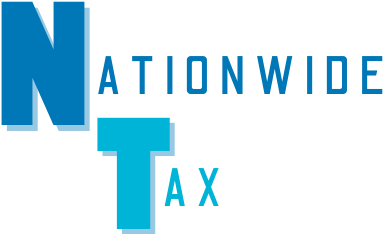Introduction
Doing your taxes can be a daunting task, especially if you’re not familiar with the process. Many individuals and businesses choose to hire professionals to handle their tax returns, but how much does it actually cost? In this article, we will break down the various factors that can influence the cost of doing a tax return in the US, as well as provide tips and information to help you navigate the process.
Table of Contents
- Factors that influence tax return costs
- Types of tax preparers and their fees
- Tips for reducing tax return costs
- FAQs
- Conclusion
Factors that influence tax return costs
The cost of doing a tax return can vary depending on several factors. Understanding these factors can help you estimate how much you might need to spend on tax preparation services.
1. Complexity of your tax situation
The complexity of your tax situation is a key factor in determining the cost of your tax return. The more complex your tax situation is, the more time and expertise it will require to prepare your return. For example, if you have multiple sources of income, investments, rental properties, or self-employment income, your tax return will likely be more complex and may cost more.
2. Type of tax return
The type of tax return you need to file can also impact the cost. Individual tax returns are generally less expensive compared to business tax returns, which may involve additional schedules and forms.
3. Geographic location
The cost of tax preparation services can vary depending on where you live. In major cities or areas with a higher cost of living, tax preparers may charge higher fees compared to smaller towns or rural areas.
4. Tax preparer’s experience and expertise
The experience and expertise of the tax preparer can also influence the cost. Certified public accountants (CPAs) and enrolled agents (EAs) typically charge higher fees due to their specialized knowledge and qualifications.
5. Additional services
Some tax preparers offer additional services, such as tax planning or audit assistance, which may come at an additional cost. If you require these services, it’s important to factor them into your overall budget.
Types of tax preparers and their fees
When it comes to tax preparation services, there are various options available, each with their own fee structure. Here are some common types of tax preparers and their typical fees:
1. Certified public accountants (CPAs)
CPAs are licensed professionals who specialize in accounting and tax services. They have extensive knowledge and expertise in tax laws and regulations. CPAs typically charge an hourly rate, which can range from $150 to $400 per hour.
2. Enrolled agents (EAs)
EAs are tax professionals who are authorized by the IRS to represent taxpayers in tax matters. They have in-depth knowledge of tax laws and can assist with tax preparation, planning, and representation. EAs may charge an hourly rate similar to CPAs.
3. Tax attorneys
Tax attorneys are lawyers who specialize in tax law. They can provide legal advice and representation in tax-related matters. Tax attorneys generally charge higher fees compared to CPAs and EAs, with rates ranging from $200 to $500 per hour.
4. Tax preparation companies
Many tax preparation companies, such as H&R Block or TurboTax, offer tax preparation services at fixed prices. The cost can vary depending on the complexity of your tax situation and the specific services you require. Prices typically start at around $100 for basic individual tax returns.
Tips for reducing tax return costs
While tax return costs can add up, there are several strategies you can employ to reduce your expenses. Here are some tips to help you save on tax preparation fees:
- Organize your financial documents and keep them in one place to make the tax preparation process smoother and faster.
- Educate yourself about tax laws and deductions to ensure you’re taking advantage of all possible tax breaks.
- Consider using tax preparation software, which can be more cost-effective compared to hiring a professional.
- Shop around and compare prices from different tax preparers to find the best deal.
- Ask about any available discounts or promotions, especially during off-peak seasons.
- Consider hiring a tax preparer who offers a flat fee rather than an hourly rate, as this can help you budget more effectively.
FAQs
1. Can I do my tax return myself without hiring a professional?
Yes, you can definitely do your tax return yourself using tax preparation software or by filling out the forms manually. However, it’s important to consider the complexity of your tax situation and your knowledge of tax laws. Hiring a professional can help ensure accuracy and potentially save you money in the long run.
2. How much does it cost to hire a tax preparer for a basic individual tax return?
The cost of hiring a tax preparer for a basic individual tax return can vary depending on the tax preparer’s fees and your geographic location. On average, you can expect to pay between $100 and $300.
3. Are tax preparation fees tax-deductible?
Sometimes, tax preparation fees can be tax-deductible. If you itemize your deductions, you may be able to deduct tax preparation fees as a miscellaneous expense. However, there are certain limitations and criteria that need to be met, so it’s best to consult with a tax professional for personalized advice.
Conclusion
Doing a tax return doesn’t have to break the bank. By considering the factors that influence tax return costs, exploring different types of tax preparers and their fees, and implementing cost-saving strategies, you can manage your tax return expenses effectively. Whether you choose to hire a professional or do it yourself, staying organized and informed will help you navigate the process with confidence.
